International
Maduro and Petro meet for the fourth time in just a few months
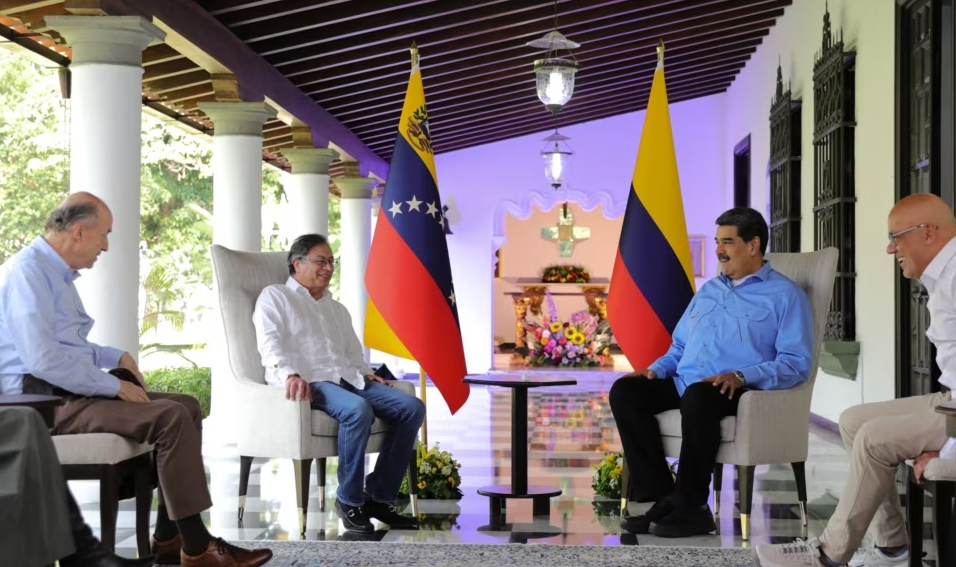
March 24 |
The presidents of Venezuela and Colombia, Nicolás Maduro and Gustavo Petro, met on Thursday in Caracas where they addressed issues of economic, commercial, financial, political and cultural cooperation, according to official sources.
“Productive and warm working meeting with the President of the Republic of Colombia, Gustavo Petro. We set out to deepen the alliances between Venezuela and Colombia, and we are achieving it with union and commitment. Always welcome to this sister land!”, Maduro simply wrote on his Twitter account on Thursday night.
Shortly after, through the official account of the Presidency of Colombia, it was reported that the leaders discussed issues related to the “joint fight against drug trafficking, the opening of consulates and the Summit of countries of the region to be held within the framework of the Amazon Cooperation Treaty Organization (ACTO)”.
The meeting, in which several high-ranking officials participated, among them the Colombian Foreign Minister, Alvaro Leyva; the president of the Venezuelan National Assembly, Jorge Rodriguez; the Colombian ambassador in Venezuela, Armando Benedetti, took place at the Aquiles Nazoa Cultural House, former presidential residence, and ended without a public statement.
Petro’s visit was scheduled for Monday, but was cancelled amid a corruption scandal in the state-owned oil industry, Petroleos de Venezuela (PDVSA), for which several high-ranking public officials have been arrested.
Following the reestablishment of diplomatic relations in August last year, after Petro took office, the leaders have already held three bilateral meetings in Caracas and one at the Atanasio Girardot International Bridge, which links the state of Táchira with the Department of Norte de Santander.
On that occasion, in February of this year, they signed a partial scope agreement of a commercial nature and Petro said he hoped that the bridges “will be filled with trade” and “people” on both sides of the border.
Consulted by Voice of America, Juan Francisco Contreras, internationalist and president of the College of Internationalists of Venezuela (CODEIV), exposes that the absence of details of the agenda generates “many speculations” and considers that one of the topics that has caused Petro’s frequent visits to Caracas are the peace negotiations of his government with the National Liberation Army (ELN).
For the internationalist with studies in security and defense, both Venezuela and Colombia are interested in the demobilization of the groups that are “outside the law on both sides of the border”.
However, he considers that there is a “rush” on the part of Petro to achieve results and believes that the priority should focus on establishing “objectives and guidelines” so that the process “does not end badly” as in the case of the Revolutionary Armed Forces of Colombia (FARC).
In his opinion, Colombia is also interested in a democratic solution to the Venezuelan political crisis, which, he believes, would allow the return of many Venezuelans in the neighboring country.
Contreras does not see, so far, that there has been a real “normalization” in trade relations.
“The way in which the economic policy has been designed in our country has affected Venezuelan businessmen, there is practically no credit, the transportation issue is very complicated, there are many situations that make our businessmen to be in difficult conditions to be able to compete with other businessmen. Changes must be made so that our businessmen can be competitive”, he explains.
In 2015, after a diplomatic crisis with the Colombian government, Maduro ordered to close the passage of vehicles on the border with Colombia and in 2018 the Venezuelan government expelled consular officials.
Relations between Maduro and former President Iván Duque, who recognized Juan Guaidó as interim president of Venezuela, were marked by constant mutual accusations, especially since 2019 when humanitarian aid was attempted to enter through the border.
International
Trump administration begins downsizing ‘bloated’ state department workforce
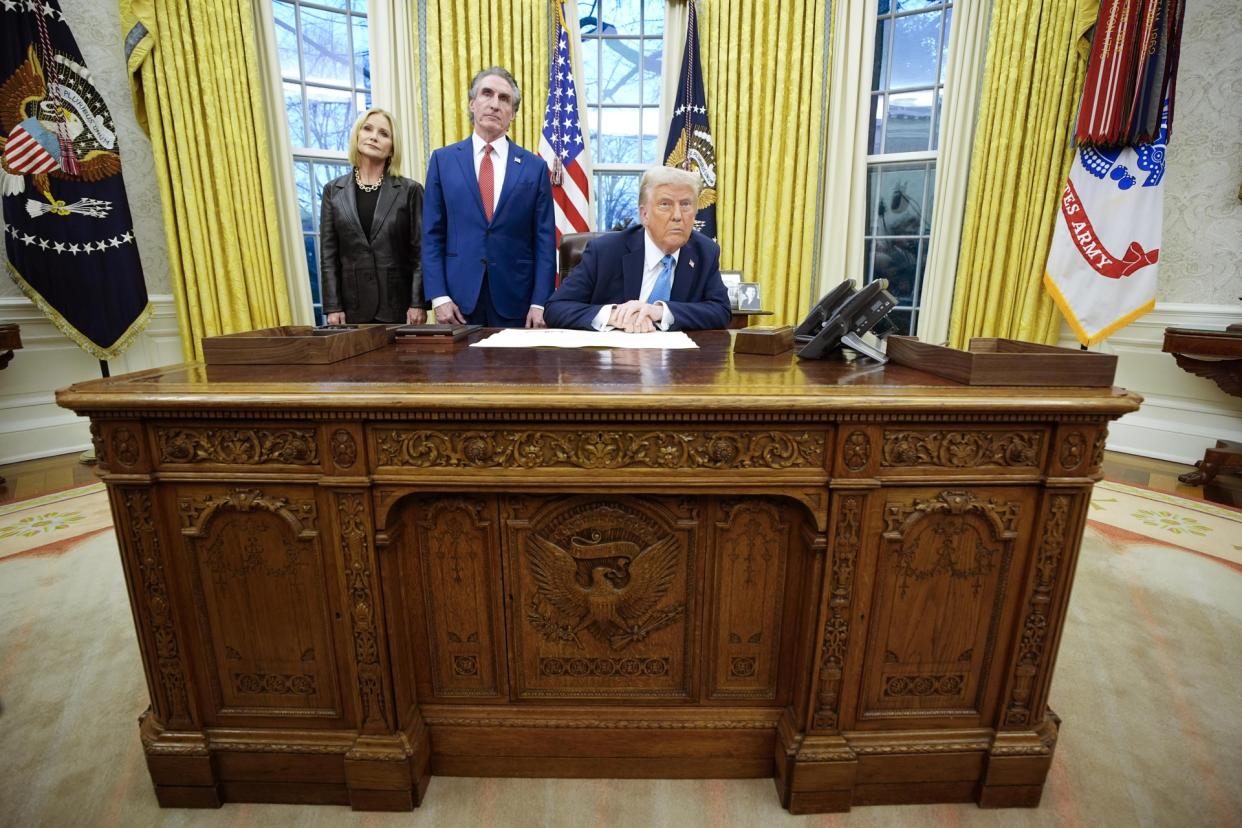
The U.S. Department of State issued layoff notices on Friday to more than 1,300 employees both domestically and abroad, marking the start of a workforce reduction aimed at trimming what officials have called a “bloated” staff. The move is part of President Donald Trump’s broader effort to restructure the federal government.
According to local media reports, more than 1,100 Civil Service employees and around 250 Foreign Service officers received notifications via email. Those affected will be placed on administrative leave for periods ranging from 90 to 120 days from the date of their dismissal notice.
The job cuts are part of a plan to centralize and streamline the agency’s operations without disrupting its overall functioning. The restructuring was designed by Secretary of State Marco Rubio, who had previously informed Congress in May of his intention to reduce the department’s workforce by 15%. The State Department currently employs about 18,000 people.
According to the top U.S. diplomat, the goal is to optimize what he described as a “bloated bureaucracy that stifles innovation and misallocates scarce resources,” as well as to eliminate remnants of “radical political ideology.”
The reorganization is expected to hit hardest in offices focused on human rights and refugee issues, which will now be handled by regional bureaus, according to The New York Times.
“We inherited a system that needed reform, and we are delivering it,” said State Department spokesperson Tammy Bruce on Thursday, adding that the Administration is committed to a foreign policy that puts U.S. interests first.
International
Trump defends Bolsonaro, hints at talks with Brazil after tariff warning
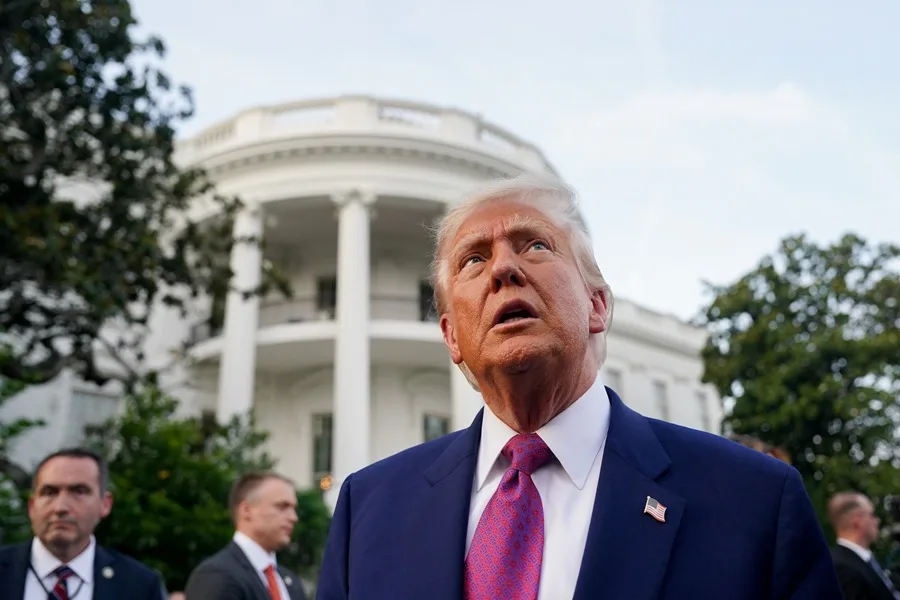
U.S. President Donald Trump said on Friday that he “might at some point” choose to speak with the Brazilian government after threatening to impose a 50% tariff on imports from the South American country, citing what he claims is a political persecution against former president Jair Bolsonaro.
“I might talk to them at some point,” Trump said when asked whether he had spoken with officials in Brasília following the tariff threat he sent earlier this week.
The president once again insisted that the government of President Luiz Inácio Lula da Silva is “treating former President Bolsonaro very unfairly.” He reiterated his admiration for Bolsonaro, calling him “a good negotiator” in trade matters.
“I shouldn’t like him because he was such a good negotiator. But he was an honest man,” Trump stated before departing Washington for flood-affected regions in Texas.
“I can tell the difference between those who are corrupt and those who are honest,” the Republican added, referring to the far-right former Brazilian president.
On Wednesday, Trump sent a letter to the Brazilian government announcing a 50% tariff on Brazilian imports starting August 1.
International
Sheinbaum slams ICE raids after 355 mexicans detained and 67,000 repatriated

Mexican President Claudia Sheinbaum stated on Friday that at least 355 Mexican migrants have been detained in various immigration raids across the United States, and over 67,000 have been repatriated since January 20, when Donald Trump’s administration began.
“There are 355 Mexican nationals directly linked to the raids who have been detained,” the president reported during her morning press conference.
She clarified that, on Thursday alone, following a raid on agricultural fields in California, the Mexican consulate received 25 calls from relatives seeking assistance for the detainees. However, the total number of those arrested is still being verified.
Sheinbaum’s comments come in response to Thursday’s reports that Mexican workers were detained by Immigration and Customs Enforcement (ICE) during raids on farms in California, specifically in Santa Barbara County, in the Carpinteria area.
The actions of ICE agents sparked protests, which were dispersed when officers deployed tear gas on demonstrators in the middle of the fields.
In response, the Mexican government, through its foreign ministry, activated its consular support protocol to assist the detained nationals.
The Mexican leader took the opportunity to condemn the raids, calling them “deeply unfair” and warning that “they will significantly harm the U.S. economy.”
-
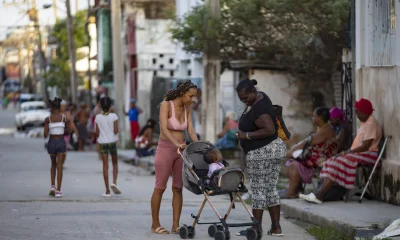
 International3 days ago
International3 days agoCuba confirms 76 femicide cases in 2024, among highest rates in region
-
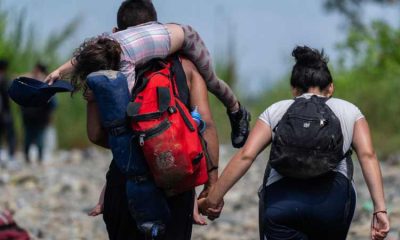
 Central America3 days ago
Central America3 days agoIllegal crossings at U.S.-Mexico border plunge 92% in historic shift
-
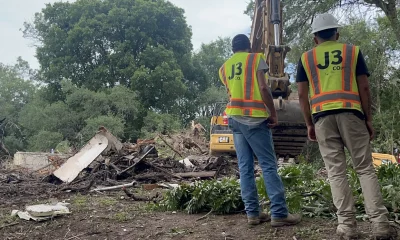
 International3 days ago
International3 days agoU.S. thanks Mexico for sending rescue teams after deadly Texas floods
-
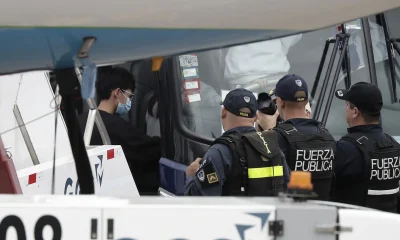
 Central America3 days ago
Central America3 days agoCosta Rica extends humanitarian status and grants work permits to stranded migrants
-
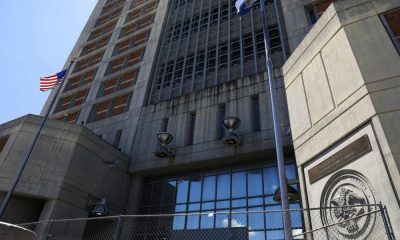
 International4 days ago
International4 days agoDOJ and FBI officially deny Jeffrey Epstein ‘client list’ conspiracy theories
-

 International4 days ago
International4 days agoIranian president says Israel tried to assassinate him, warns U.S. against war
-
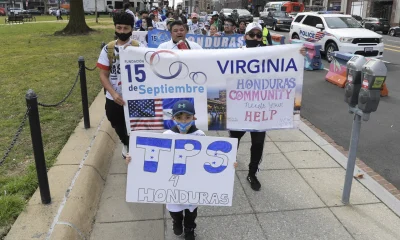
 International4 days ago
International4 days agoHonduras regrets U.S. decision to end TPS for 72,000 hondurans
-

 Central America2 days ago
Central America2 days agoDengue crisis in Panama: co-circulating serotypes fuel rise in fatal cases
-
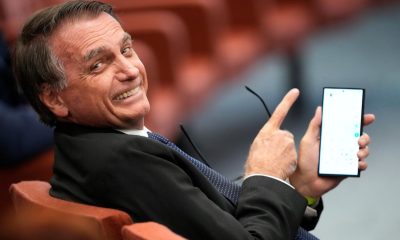
 International4 days ago
International4 days agoBolsonaro thanks Trump for support amid Brazil coup trial
-

 International4 days ago
International4 days agoSheinbaum urges unity and respect after clashes over gentrification in Mexico City
-
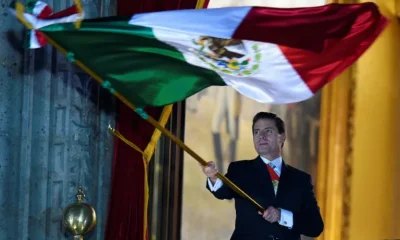
 International3 days ago
International3 days agoMexico launches probe into alleged $25 million bribe to ex-president Peña Nieto
-
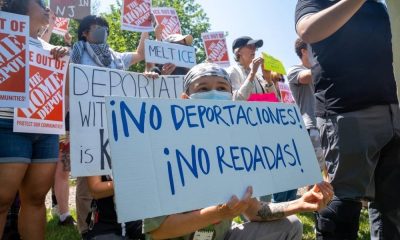
 International2 days ago
International2 days agoICE set to become America’s largest security force under Trump’s $75B immigration overhaul
-

 International4 days ago
International4 days agoGunman killed after shooting outside Texas Border Patrol Building
-
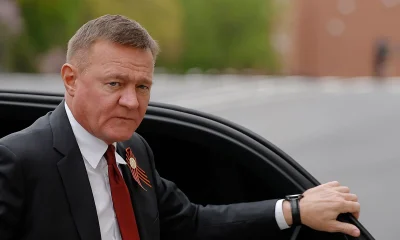
 International4 days ago
International4 days agoRussian ex-transport minister found dead after dismissal by Putin
-
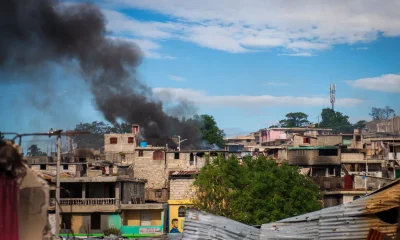
 International4 days ago
International4 days agoTrump ends TPS for haitians as gang violence surges in homeland
-

 International3 days ago
International3 days agoTrump and Bondi slam Epstein inquiry amid Texas flood tragedy
-
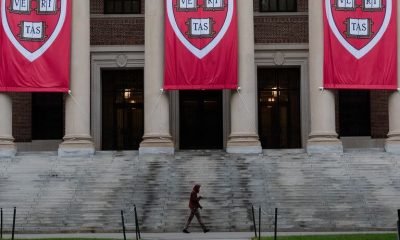
 International2 days ago
International2 days agoHarvard faces Federal pressure over immigration docs, autonomy dispute intensifies
-
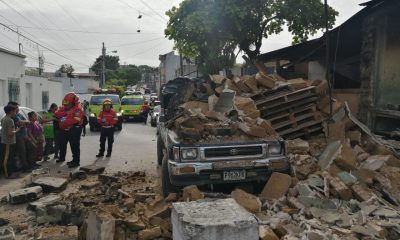
 Central America2 days ago
Central America2 days agoGuatemala hit by over 300 quakes; death toll rises to seven
-

 Central America2 days ago
Central America2 days agoU.S. revokes visas of top Costa Rican lawmakers and constitutional judge
-
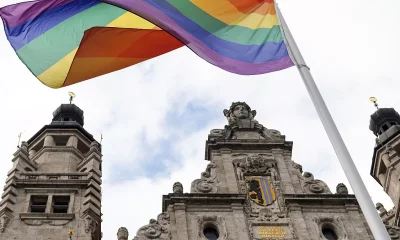
 International2 days ago
International2 days agoGerman parliament orders removal of LGBTQ+ flags amid growing controversy
-

 International2 days ago
International2 days agoFederal judge halts Trump’s order to end birthright citizenship
-
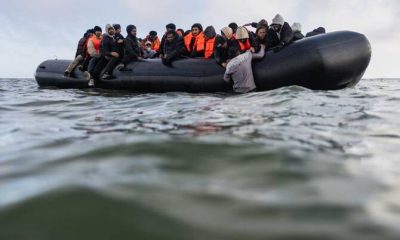
 International2 days ago
International2 days agoUK and France seal innovative migrant exchange deal to curb channel crossings
-

 International15 hours ago
International15 hours agoSheinbaum slams ICE raids after 355 mexicans detained and 67,000 repatriated
-
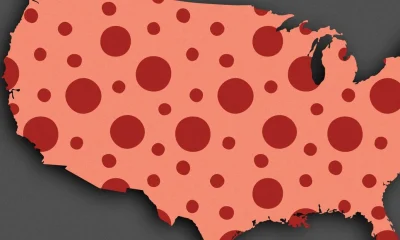
 International2 days ago
International2 days agoCDC reports record measles outbreaks in 39 U.S. jurisdictions this year
-
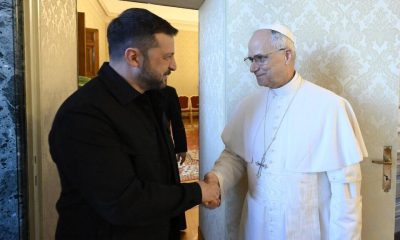
 International2 days ago
International2 days agoUkraine gains $10 billion in commitments during Rome Recovery Forum
-
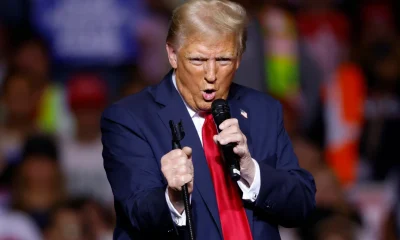
 International2 days ago
International2 days agoSix agents penalized for conduct failures in July 2024 attack on Donald Trump
-

 International15 hours ago
International15 hours agoTrump defends Bolsonaro, hints at talks with Brazil after tariff warning
-
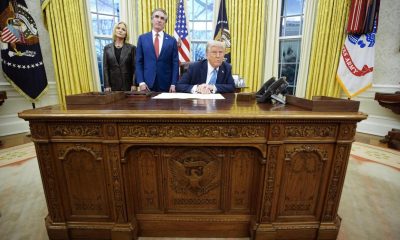
 International15 hours ago
International15 hours agoTrump administration begins downsizing ‘bloated’ state department workforce




















